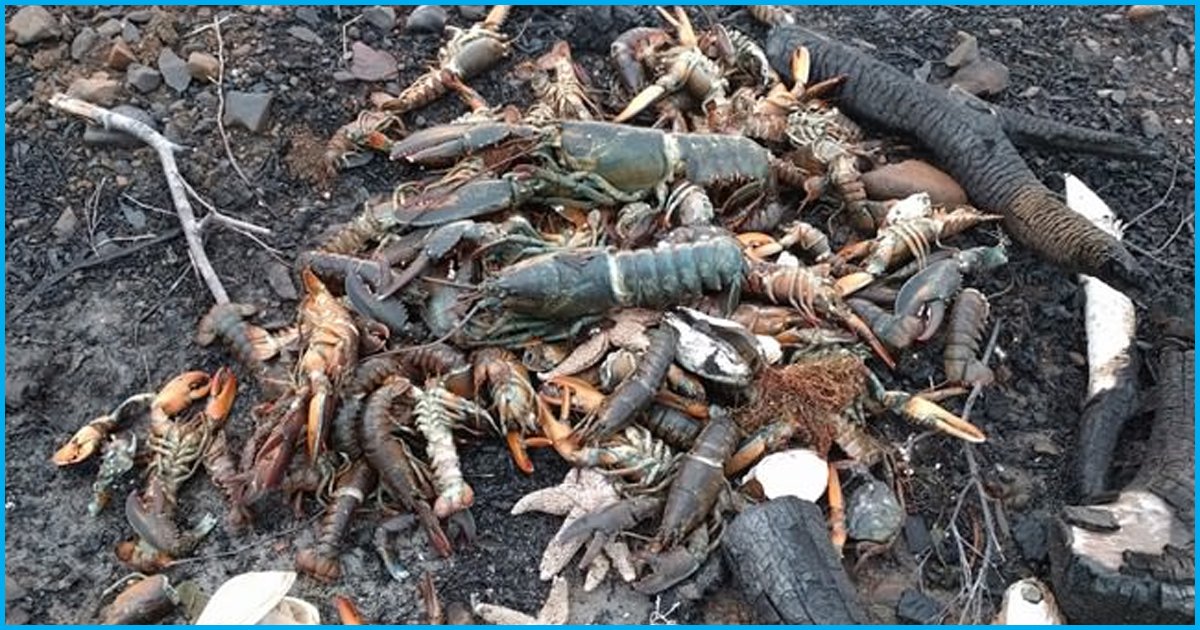
UK: Millions Of Dead Sea Creatures Wash Up The Shores Post “Beast Of The East” And Storm Emma
9 March 2018 1:06 PM GMT
The current freezing weather in the United Kingdom(UK) took a toll over the lives of thousands of lobsters, mussels, starfish and crabs as they were washed up on the UK’s North Sea coast.
The mass mutilation of thousands of creatures had been reported from Holderness coast of Yorkshire and Kent and Norfolk. The Storm Emma and the Beast from the East are the major reasons for such huge numbers.
BexLynam of the Yorkshire Wildlife Trust said,” There was a 3 degree Celsius drop in the sea temperature last week which will have caused animals to hunker down and reduce their activity levels.” He continued,” This makes them vulnerable to rough seas- they became dislodged by large waves and washed ashore when the rough weather kicked in.”
Lynam said,” Larger animals such as dolphins are more mobile and can save themselves by swimming away when this sort of thing happens“. Some birds were also discovered among the dead mass including seagulls.
The creatures accumulated all along the shores lifeless with the exception of some lobsters. The members of Yorkshire Wildlife Trust along with the fisherman from the locality saved and took them to tanks in Bridlington. A commercial fisherman, Jack Sanderson described the scene as a war zone, “This area is very important for shellfish, and we work alongside fisherman to promote sustainable fisheries and protect reproductive stocks. It is worth saving them so that they can be put back into the sea and continues to breed.”
Norfolk Wildlife Trust’s Holme Dunes reserve near Hunstanton also witnessed large number of dead creatures. Gary Hibberd, a local warden, said he came across dead starfish, crabs and many other species.
The senior living seas officer, Dr Lissa Batey at the Wildlife Trust explained that they cannot prevent every such natural happening.” We cannot prevent natural disaster natural disasters like this. However, we can mitigate against at declining marine life and problems that humans cause by creating enough protected areas at sea and by ensuring that these sites are large enough to offer fish, crustaceans, dolphins and other marine life the protection they require to withstand natural events such as this.”
The water of Holderness inshore has already been marked as Marine Conservation Zone (MCZ).This year , the government is expected to announce agreement on more such zones.
In 2011, the government consultation suggested 127 sites, out of which only 50 have been marked so far. 20% of English water is marked under the 50 MCZs. These zones face a real deal of censure for being unable to protect large ruined areas of seas of England from unearthing and trawling.
One of the leading marine conservation experts of UK and professor of York of University, Prof Callum Roberts said,” They have no management at all, so life within them remains unprotected.” He further added,” They will be worse than useless, giving the illusion of protection where none is present.”
When a 47-year-old, wildlife enthusiast, Lara Maiklem visited the beach and found this scene there, she photographed it and posted on social media.
The natural disasters have been increasing day-by-day, and with every disaster we lose lives.Moreover global warming is contributing to this too.The alarming rise in sea level is another reason for frequent water-related natural disasters.Global warming alone has killed thousands of creatures. Last year, the cold weather in the US swept sharks on the shores just like in the UK this year.
 All section
All section













